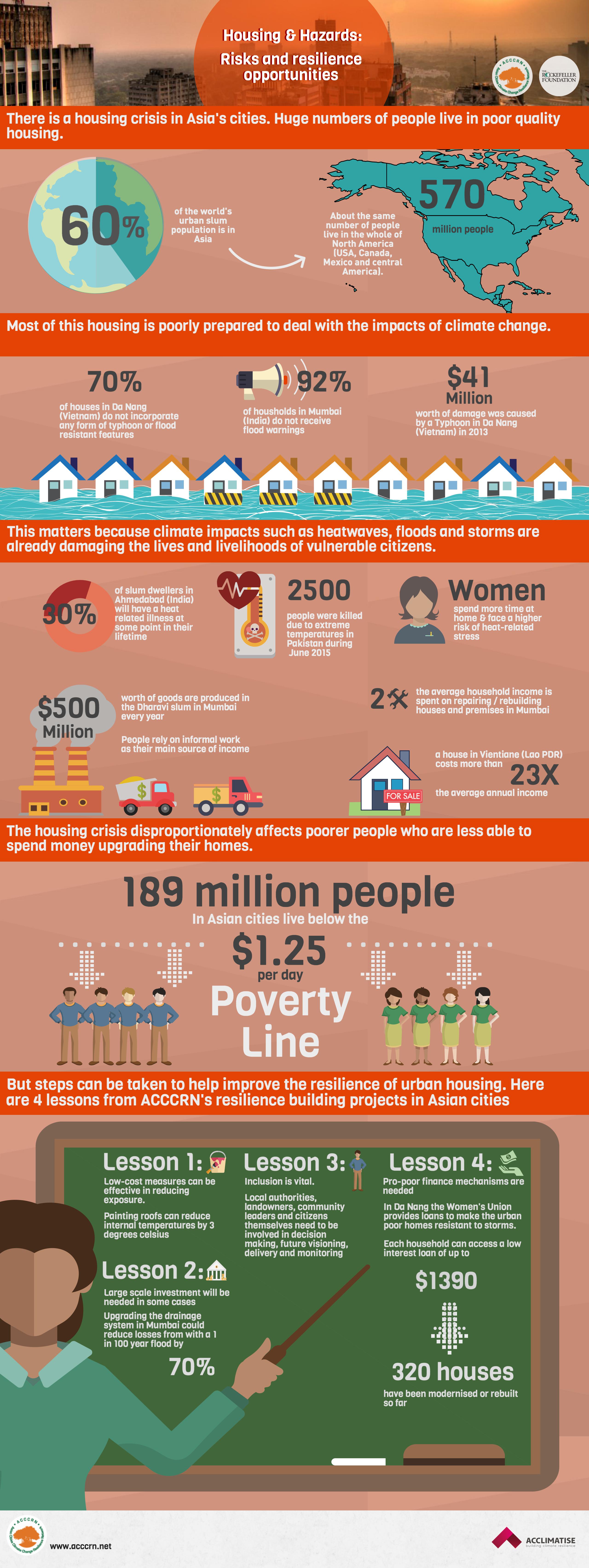
Climate change will have enormous impacts on urban areas in the developing world. Climate impacts disproportionately affect the poorest and most vulnerable communities. One of the reasons for this is that many of the poorest communities live in informal settlements, often highly exposed to climate hazards. Overcrowded living conditions, unsafe housing and lack of adequate infrastructure and services further exacerbate the risks.
This infographic explores the challenges of social equity and resilience by visualising climate impacts and resilience measures. It draw upon a research programme, titled ‘Sheltering for a gathering storm’, which focused on developing practical solutions for resilient shelters and the long-term economic returns of investing in such shelter structures.
The programme focused on urban areas in India, Vietnam and Pakistan, which were identified as facing risks from flooding, typhoons and extreme heat. The project was led by ISET-International in collaboration with local partners across Pakistan, India, and Vietnam, and was funded by the Climate and Development Knowledge Network (CDKN).
This infographic highlights a number of transferable lessons from ACCCRN resilience building projects in Asian cities, including the:
- Effectiveness of low cost measures;
- Requirement for large-scale infrastructure investment, in some cases;
- Importance of including stakeholders; and
- Need for pro-poor finance mechanisms.
---
A full outline of the ‘Sheltering from a Gathering Storm’ project and all resources are available on a dedicated page of the ISET website: http://i-s-e-t.org/projects/shelter.html
CDKN has also posted the outputs from the project on the following webpage: http://cdkn.org/project/sheltering-from-a-gathering-storm/

